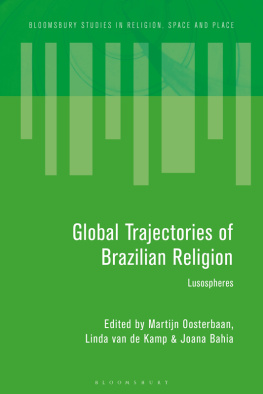Table of Contents
Guide
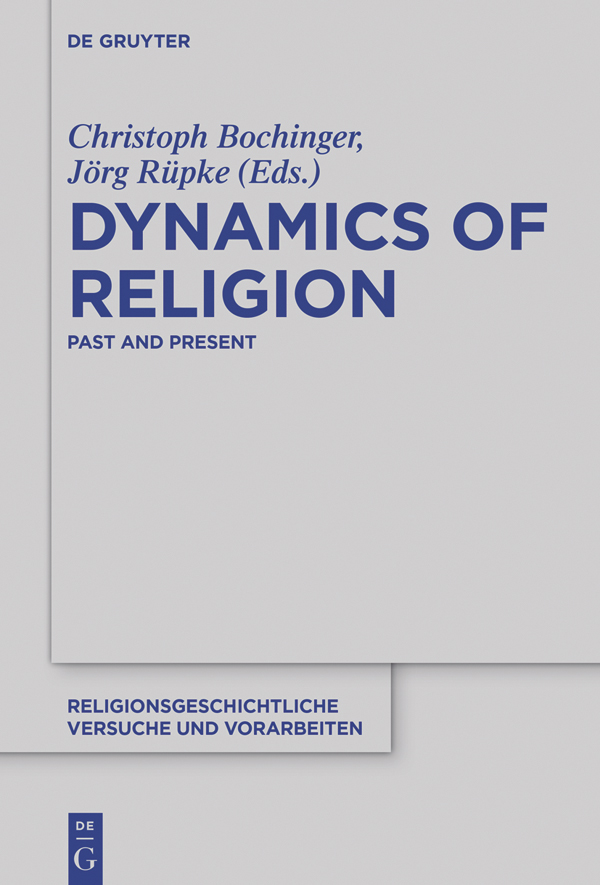
Dynamics of Religion
Religionsgeschichtliche
Versuche und Vorarbeiten

Herausgegeben von
Jrg Rpke und Christoph Uehlinger
Band 67
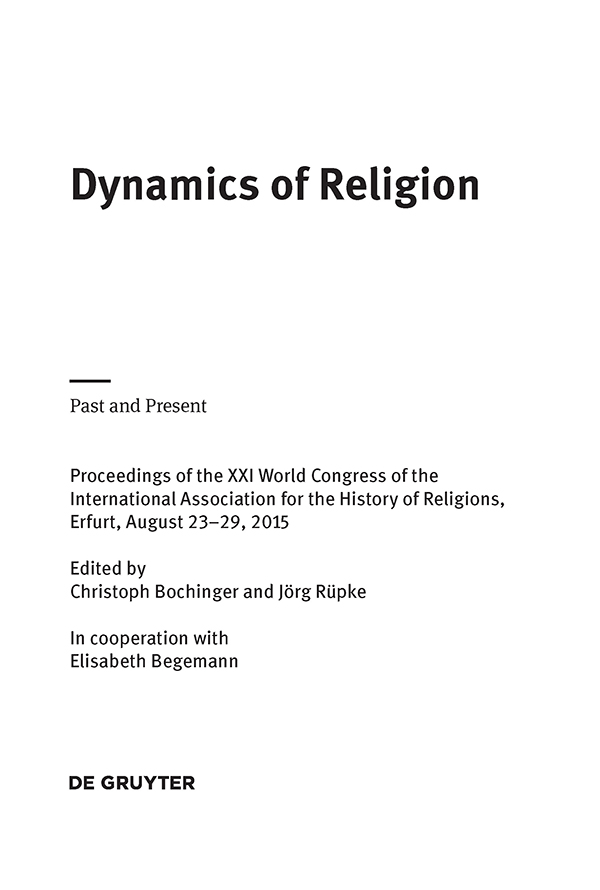
ISBN 978-3-11-045092-7
e-ISBN (PDF) 978-3-11-045093-4
e-ISBN (EPUB) 978-3-11-045110-8
ISSN 0939-2580

This work is licensed under the Creative Commons Attribution-NonCommercial-NoDerivs 3.0 License.
For details go to http://creativecommons.org/licenses/by-nc-nd/3.0/.
Library of Congress Cataloging-in-Publication Data
A CIP catalog record for this book has been applied for at the Library of Congress.
Bibliographic information published by the Deutsche Nationalbibliothek
The Deutsche Nationalbibliothek lists this publication in the Deutsche Nationalbibliografie; detailed bibliographic data are available on the Internet at http://dnb.dnb.de.
2017 Walter de Gruyter GmbH, Berlin/Boston
www.degruyter.com
Tim Jensen, President of the IAHR
Preface
Continuing a trajectory of global expansion begun in the 1950s along with its tradition of promoting the scientific, academic study of religions, the XXI 2015 World Congress of the IAHR in Erfurt is of both historical and immediate interest. The Erfurt Congress was the first to be held in Europe in twenty-five years. The proceedings published here provide an invaluable resource not only for IAHR nerds and librarians but also for the IAHR membership at large, and for all scholars of religion around the world providing, as they do, a context for the ongoing mission of the IAHR and its own historical transformation over time.
The first International Congress for the History of Religions was held in Paris 1900. Interrupted by the First World War and with changing intervals, congresses were held in 1904, 1908, 1912, 1923, 1929, and 1935, all in European cities. The first post-WWII congress took place in Amsterdam 1950, and in the same year The International Association for the Study of the History of Religions (I.A.S.H.R) was founded. At the 1955 VIII Congress for the History of Religions in Rome, it was decided to change the name of that association to The International Association for the History of Religions (I.A.H.R. later simply the IAHR).
Since 1950, the IAHR has been strategically developed to become truly global or international. In 1958, the first conference was held outside Europe the IX International Congress for the History of Religions held in Tokyo and Kyoto, Japan. A decision was taken after the next conference, the X Internationaler Kongress fr Religionsgeschichte , held in Marburg 1960, to adopt a quinquennial model, holding world congresses every five years.
In 1954, the establishment of NVMEN (the IAHR flagship journal which for a long time included a special [I.A.H.R] Bulletin reporting on the meetings and decisions of the IAHR executive and international committees as well as of the General Assembly), marked the transformation of IAHR into an organization with a life and function between congresses.
Since then a separate IAHR Bulletin (beginning in 1986) enhanced by an IAHR Bulletin Supplement and later an IAHR e-Bulletin Supplement (see www.iahr.dk/bulletins.php) have continued the expansion of the IAHR beyond the quinquennial congresses, and so has an IAHR book series. The NVMEN Book Series (as of 2008 no longer with the IAHR) has recently been substituted by a new IAHR book series named The Study of Religion in a Global Context , published with Equinox. An international committee meeting held in-between the quinquennial world congresses, and, not least, a series of regional and special conferences, further expanded the scope of the IAHR.
Nevertheless, the world congresses have been and still are pivotal to the development and history of the IAHR and thus also to the academic study of religions worldwide. Each of the world congresses, with subsequent proceedings, constitutes what has been called a milestone or landmark in IAHR history and in the history of the History of Religions, nowadays often called the Study of Religion(s). The Erfurt 2015 IAHR World Congress and these proceedings are no exception.
Proceedings, the present ones too, with their overview of the academic program, with im- or explicit indication of changing theories and approaches, with their listing of congress participants as well as of IAHR member associations and affiliates, and with the inclusion of the reports and minutes from IAHR business meetings, bear witness to the development and dynamics of the international study of religions as driven by and reflected within the IAHR.
The reader of the present proceedings thus can find, inter alia , information on the election of the IAHR Executive Committee 20152020, and of the discussions about a proposal to change the name as well as the decision not to change the name. The IAHR, thus, in spite of the proposals for a change discussed in 1995 in Mexico and now again in 2015 in Erfurt, is still carrying the name it gave itself in Rome in 1955. The curious are directed to the appropriate reports, minutes and proceedings as reflective of the continued vitality and expansion of the IAHR.
Locating the XXI IAHR World Congress in Erfurt, Germany, Europe, thus cannot be seen as evidence of a continuous or lingering Euro-centrism within the IAHR. On the contrary. The 2015 IAHR World Congress was the first IAHR world congress to be held in Europe for 25 years, and though the number of scholars from outside Europe was not at almost 50% (as first estimated), the Erfurt World Congress, nevertheless, evidenced the continuous process towards globalization.
The aim of the IAHR (cf. the Constitution 1), however, is not globalization as such and at any cost. The aim of the IAHR is to promote the academic study of religions through the international collaboration of all scholars whose research has a bearing on the subject. The paragraph added in Toronto 2010 to this statement (The IAHR is not a forum for confessional, apologetical, or other similar concerns) speaks its own clear language as regards the concomitant aim to strictly limit the business of IAHR-related conferences and publications, wherever in the world they take place or originate, to the scientific, academic study of religions.
The Erfurt World Congress proceedings bear witness to the continuous growth, change and development in terms of members, research areas and approaches. They bear witness to a congress that, though held in the heartland of Europe, reflected the globalization of the IAHR. And they bear witness to the efforts of the IAHR, the German hosts, and the Academic Program Committee to present an academic program in line with the academic aims of the IAHR.
Heartfelt thanks are extended to the Erfurt hosts and host institutions, to the DVRW (The German Association for the Study of Religion), and to everybody else engaged in the planning and holding of the congress. Special thanks are extended to all those, the IAHR Publications Officer, Prof. Satoko Fujiwara included, engaged in the swift and expedite editing and publishing of these proceedings.

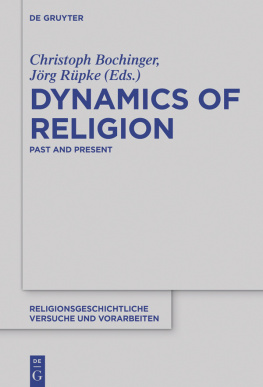


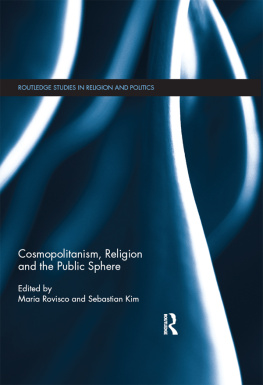
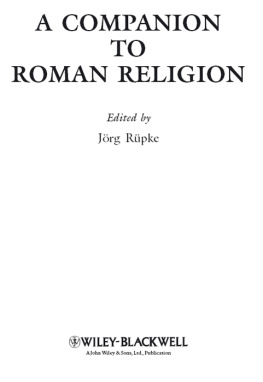
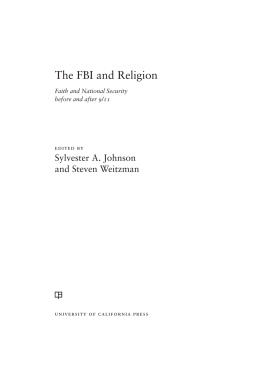
![Blackford - Freedom of religion [and] the secular state](/uploads/posts/book/167779/thumbs/blackford-freedom-of-religion-and-the-secular.jpg)
